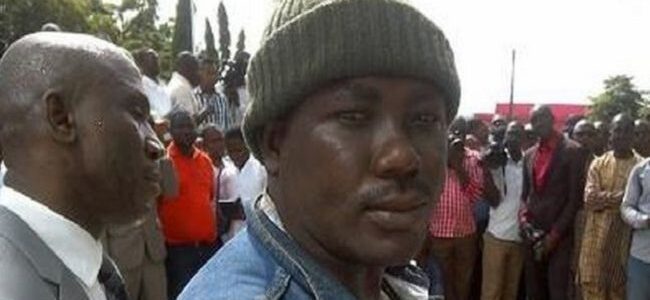
TERWASE Akwaza, also known as Gana, a notorious militia kingpin in Benue and conterminous states, has been killed by soldiers who intercepted the government convoy conveying him to Makurdi where he and more than 100 of his men were billed to be granted amnesty by the state governor, Samuel Ortom. Gana was reported to have surrendered himself to embrace peace and the amnesty programme organised by the state government before he was arrested by soldiers who summarily executed him. The level of involvement of security agents in the alleged surrender of Gana and the plan by the state government to grant him amnesty is yet unclear, but it is unlawful to kill anyone, including suspects, extrajudicially. For four years, the government could not fish him out of the bush but now that he came out and surrendered, the military ambushed and arbitrarily executed him. The disturbing incident raises some posers. Were the military oblivious of the provisions of the local law and international humanitarian laws forbidding extrajudicial killing or did they just decide that the laws should not apply in Gana’s case?
Assuming but not conceding that the atrocities committed by Gana were such that could not be overlooked through the instrument of amnesty, is it the place of the military to make such a decision? Is it the military or the court that should decide whether or not the militia leader is unfit or too dangerous to be a free man in the society? In whose interest is it to summarily execute a repentant militant who voluntarily surrendered himself, ready to lead a normal life, and who was even reportedly willing to help security agents to fight insecurity? Is it no longer a cardinal principle that you do not kill someone who has surrendered? Will Gana’s protégés and scions still in the bush come out after learning about what has happened to their leader? And is the government not unwittingly unleashing another insurgency on the country?

Ordinarily, it is expected that some lessons would have been learnt from the mishandling of the case of Yusuf Mohammed, the erstwhile leader of Boko Haram who was arrested by the military and handed over to the police, but died mysteriously in police custody. His summary execution by the police, rather than putting paid to the heinous activities of the terrorists, has led to escalation of the group’s criminal actions since 2009. And why and how is Gana’s case different from that of some repentant bandits in the North-West and Boko Haram terrorists in the North-East who have been granted amnesty?
Was the military not interested in the prime information it could have obtained from the militia leader upon debriefing, or do some officers have anything to be afraid of in that regard? While the atrocities of Gana cannot be justified under any guise, his controversial and extrajudicial killing should not be condoned, not only because it has robbed the security agencies of vital information that may have been useful to rein in insecurity in the land but also because his murder amounted to self-help by the military.

There is a dangerous twist to the entire saga that the government must resolve dispassionately: the military authorities have announced that Gana was killed in a gun fight with soldiers but the state governor has claimed that the militia kingpin with some of his men was on his way to be granted amnesty by him. The question may be asked as to where the gun duel between Gana and the soldiers erupted: was it in the bush or on the highway? Would the military claim that it was not aware that Gana was in a government convoy? And did Governor Ortom apprise the security agencies, including the military, of Gana’s surrender and the state government’s arrangement to extend amnesty to him? And why were there no security agents among the delegation that comprised the repentant militants, local government officials, religious and traditional leaders? These questions are germane against the backdrop of Gana’s shifty antecedents which made the police to declare him wanted after taking advantage of his position as a vigilante allegedly armed by the state government to murder Denen Igbana, the governor’s aide on Special Security.
The Federal Government should, in an objective manner, get to the root of the discordant tunes being sung by the military and the Benue State government as both parties, in the interest of national security, cannot be allowed to work at cross purposes. The objective should be to sanction the culprits appropriately in order to serve as a deterrent to other security agents who may have the erroneous impression that they can abridge the rule of law and international humanitarian laws with impunity.
Credit: Tribune
